Get to know PUCRS’s undergraduate students who are taking sandwich doctorates around the world
Vinicius, Caroline, Bernardo and Gisele are developing their research in partner universities through the PrInt Program
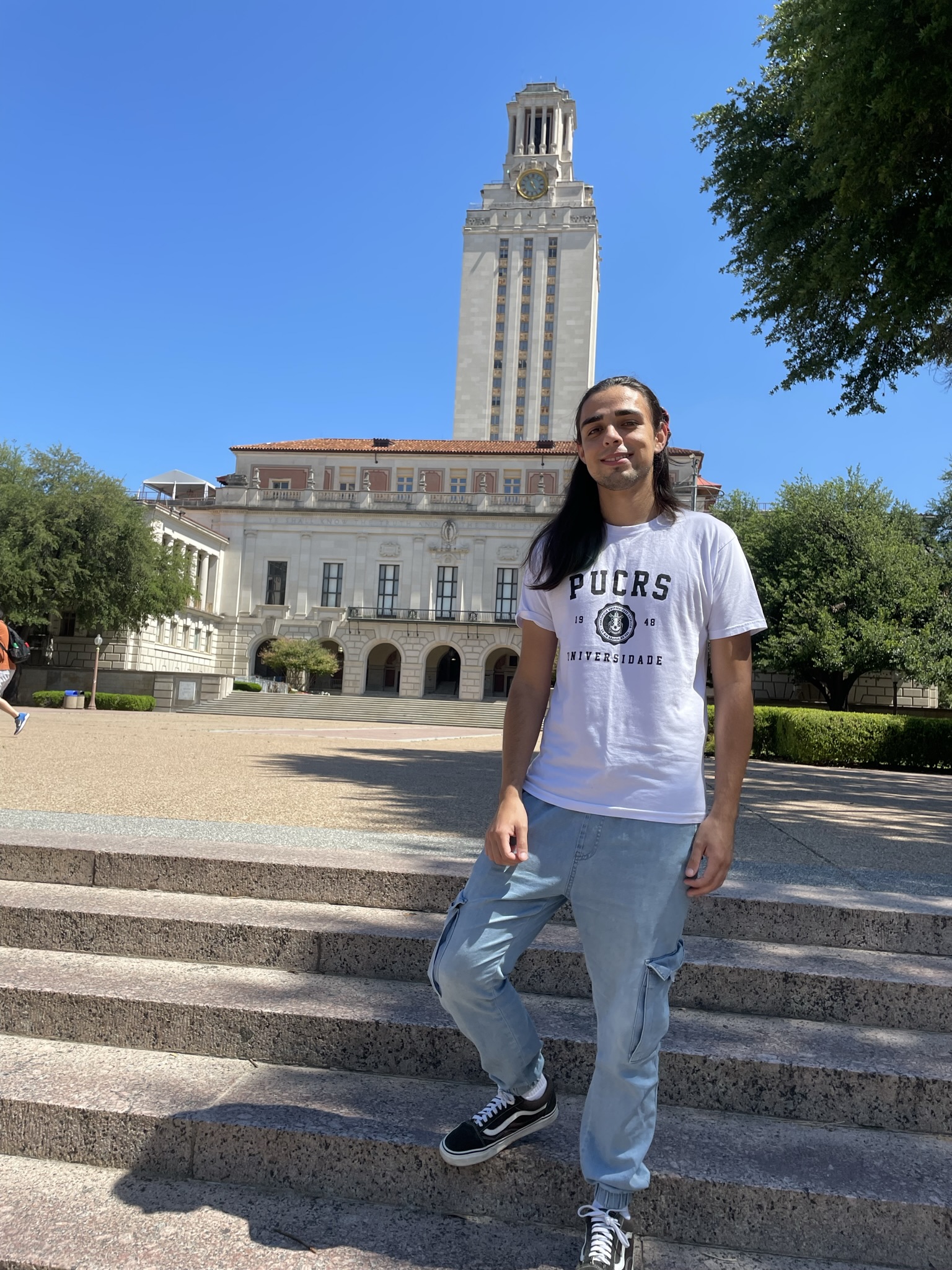
Photo: Archive personal
PUCRS’S CAPES-PrInt Program has the goal of developing and incorporating international perspectives to the University’s Graduate Programs, aiming at academic excellence and effective actions for society’s global issues. With applications open until June 19th, doctorate students from the University may study abroad during 6 to 12 months, in an experience that allows them to broaden their academic and cultural horizons, as well as enhancing their research skills.
The doctorate student of the PPG in Ecology and Evolution of Biodiversity, Vinicius Freitas Klain is taking his sandwich doctorate in the University of Texas, in the United States, through the CAPES-PrInt Program, in the priority theme Health in Human Development. The student studies how anthropogenic landscapes can influence the cross-transmission of parasites among non-human primates, humans and domestic animals, while advised by PUCRS researcher Julio Cesar Bicca Marques.
With the international opportunity, Vinicius is developing his theses at the Primate Molecular Ecology and Evolution Laboratory, advised by some of the greatest specialists in primate molecular ecology, professor Anthony Di Fiore. The student says that, in the Texas University laboratory, he has access to various molecular biology technologies that are crucial to reach the goal of his research, in addition to being an important experience for his development as a person and as a researcher.
“Being in a university abroad allows me to come in contact with people from all around the world, including renowned professors and students in my field of study. This connection with people from different cultures enriches the sandwich doctorate experience and helps to envision possibilities of continue my academic life after finishing my doctorate,” he explains.
Studies on oral health in Canada
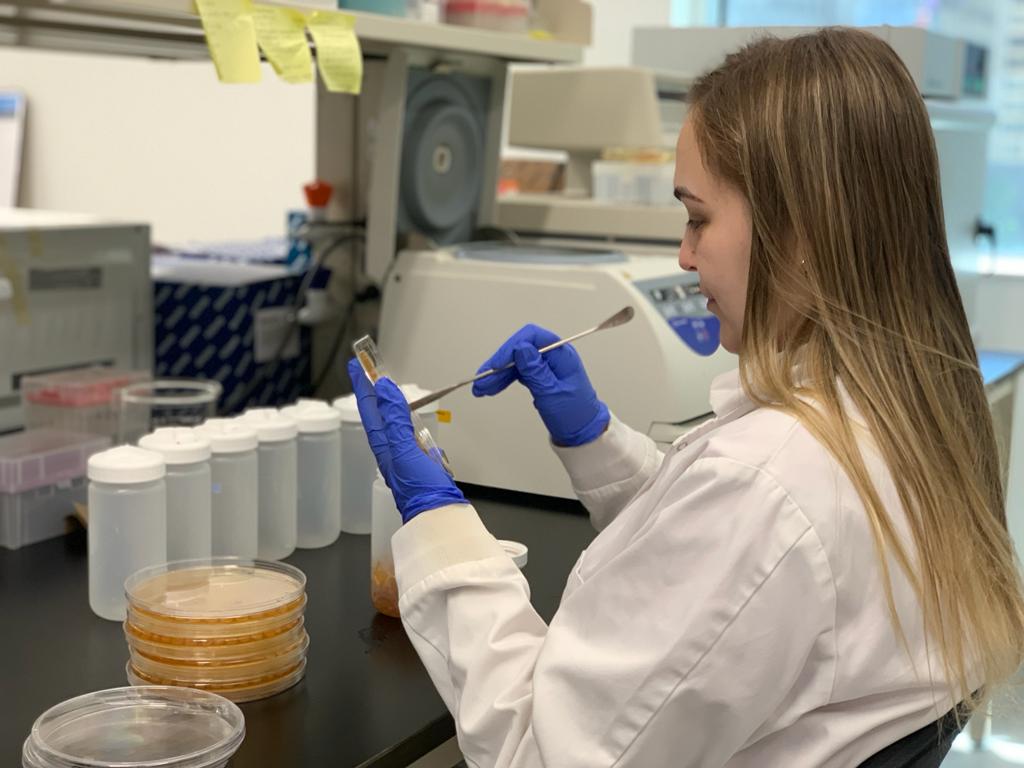
Photo: Archive personal
Advised by the School of Health and Life Sciences professor Sílvia Dias de Oliveira, the doctorate student from the PPG in Dentistry, Caroline Bueno, is in the University of Toronto, in Canada, through the PrInt Program. The researchers are developing a project associating the use of probiotics as an object of oral health treatment in relation to radio/chemotherapy, a relatively new topic that has been the subject of many recent studies and discoveries in every area of healthcare.
With this opportunity, Caroline joins the Microbiology and Immunology Laboratory of the Canadian university, led by professor Dr. Michael Glogauer, who also works with probiotics. The purpose of the student’s work is to produce and analyze the efficiency of the peptides arising from a strain of the Streptococcus salivarius bacteria, which will be used as probiotics.
“Thanks to this opportunity, I am broadening my horizons in laboratory research, learning new techniques which may be employed for future research in the university around me, developing new relationships for partnerships in research with colleagues from here, in addition to acquiring knowledge on an innovative theme that may still be very much explored in Dentistry,” stressed Caroline.
Sandwich-doctorate in the field of Artificial Intelligence in the United States
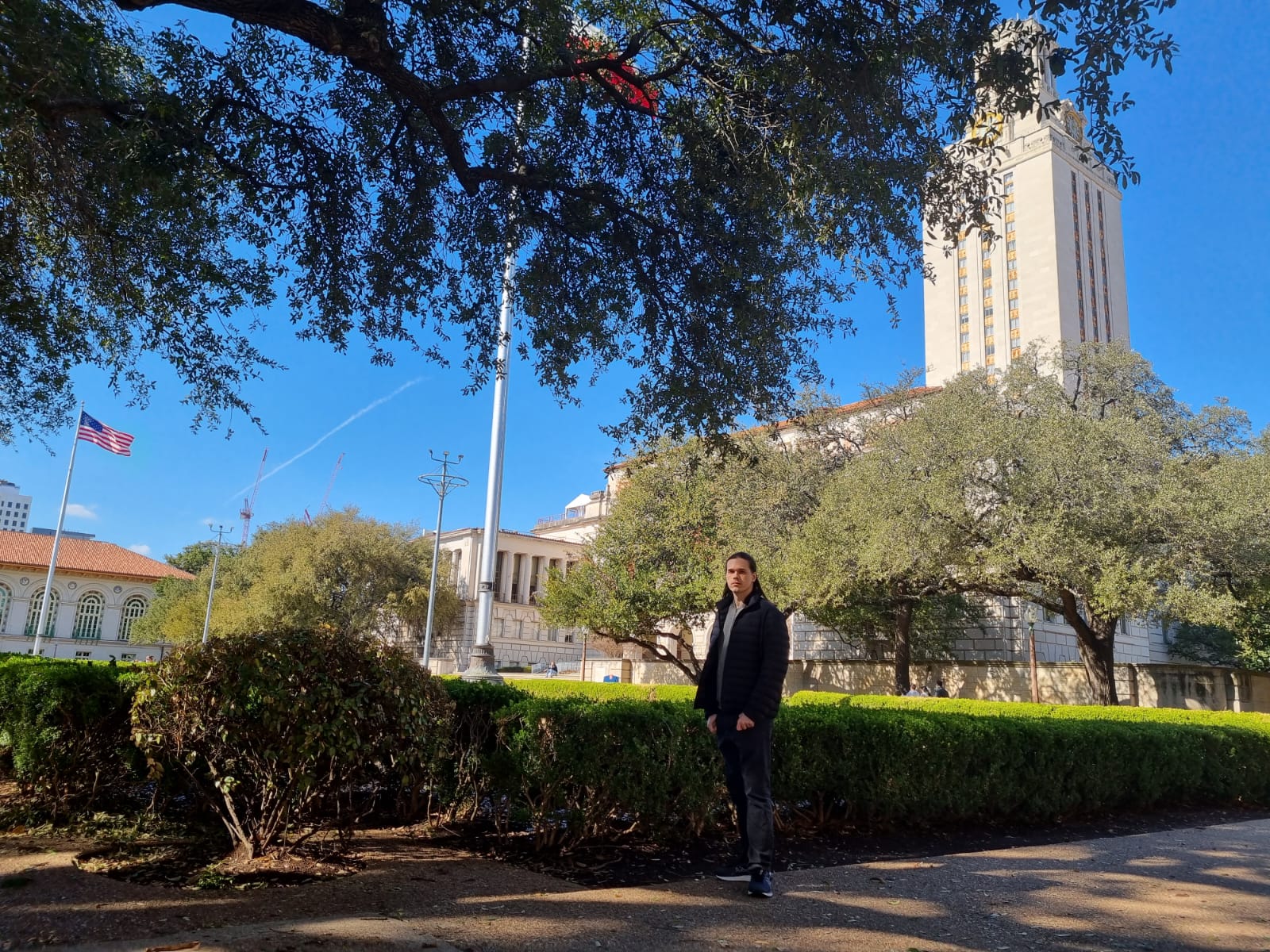
Photo: Archive personal
Bernardo Consoli is a doctorate student from PUCRS’s PPG in Computer Science and is currently in the University of Texas in Austin, in the United States, to study the use of artificial intelligence in healthcare, advised by researcher Ying Ding. The student is taking his sandwich doctorate advised by professor from the School of Technology Rafael Heitor Bordini, for the theme Technology and Biodiversity. According to Bernardo, the access to great computer centers and necessary databases has been important to develop his research.
The student works on projects that focus on the use of tools of understanding and natural language generation, such as ChatGPT, to assist healthcare professionals. These tools are used in the support of medical decisions made by professionals, to help managing patient flow in hospitals by strategic allocation of hospital beds and estimated length of stay, for instance, as well as helping patients to better describe their symptoms and feelings so that professionals have more information faster on their cases.
“The experience has provided me with several important connections fostered by my advisor abroad and by the University that enable me to advance my research even more. The purpose of this opportunity is to bring back techniques I learn about for the Brazilian clinical setting, in such way that it may assist in the development of our research in the field of artificial intelligence in national healthcare,” concluded Bernardo.
Research in Languages in the University of Lisbon
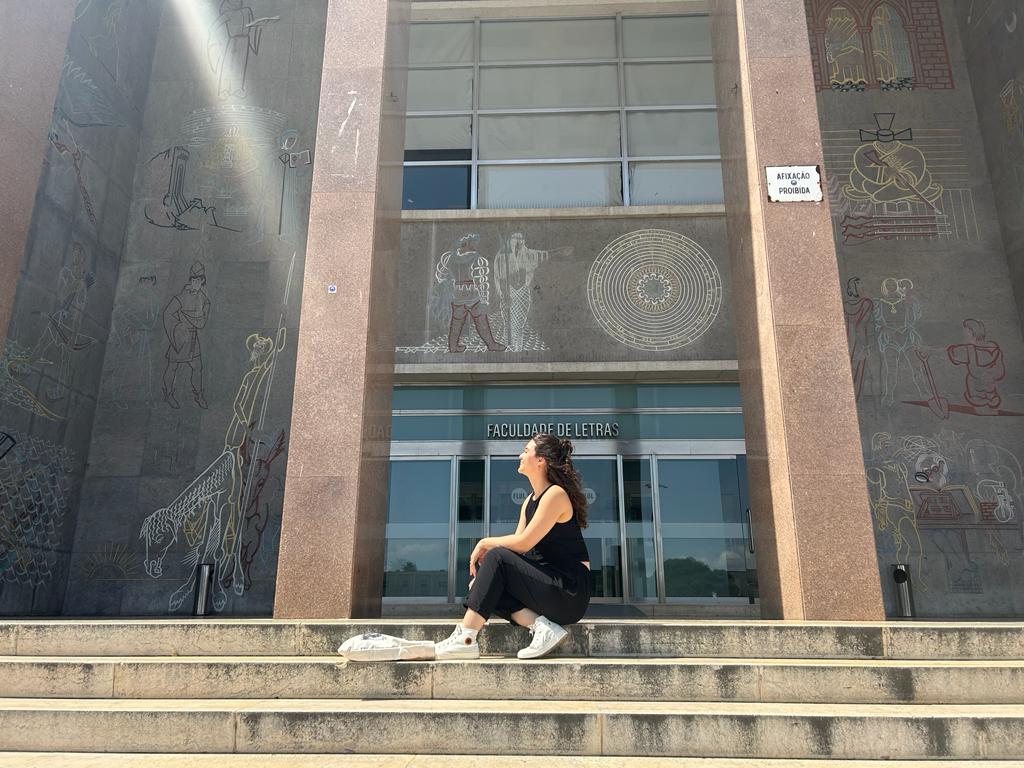
Photo: Archive personal
The doctorate student Gisele Caroline Seeger da Silva from PUCRS’s PPG in Languages is developing her thesis on the (dis)figuration of the character in Portuguese narrative of the 20th century and its connections with the interrogation of the world and the human being in the University of Lisbon, in Portugal. The student is taking her sandwich doctorate through PrInt, for the theme World in Motion, advised by PUCRS professor Paulo Ricardo Kralik Angelini and Portuguese Professor Helena Carvalhão Buescu, from the Center for Comparative Studies of the Faculty of Literature.
According to the student, her experience in the University of Lisbon has allowed her to participate in curricular activities and conferences that add to her theoretical education. The structure of one of the main education institutions in Portugal has also given her the opportunity of having access to libraries, bookstores, museums and national archives, allowing Gisele to access critiques of the authors of the work she studies.
“Developing part of my research in the University of Lisbon has been one of the most enriching experiences of my academic and personal journey. In addition, the opportunity of studying Portuguese literature in loco — in direct contact with the landscapes, accent, music, scents, and flavors of Lisbon — has only reaffirmed my immense appreciation for my field of work and my desire to share everything I have learned here with my colleagues and future students,” she said.
